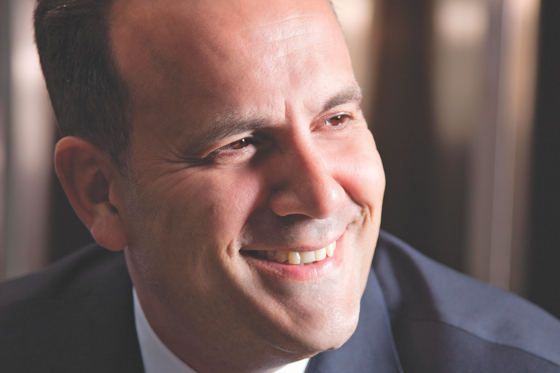People — especially employees — must come first in 2015 on the operational front. This is just one of the predictions revealed in a wide-ranging forecast for the coming year published in the December print edition of HOTELS.
Hoteliers need to be proactive about training and retaining staff, according to Russell Kett, chairman, HVS London. Plus, connecting with guests online will become even more important.
Below is a series of other operational questions HOTELS posed to a variety of industry leaders worldwide.
HOTELS: What do you see as the next major operational revolution?
Arash Azarba, president, SBE, Los Angeles: Loyalty programs need to evolve. We have a customer base that skews toward Millennials. Points/rewards-based loyalty programs do not resonate with that audience. Instead, we’ve created The Code (which includes discounts, promotions and rewards at the company’s casinos as well as other exclusive benefits), which harnesses our customers’ preferences to provide exclusive access and personalized offers.
HOTELS: What is one thing hoteliers can do better?
Omer Kaddouri, president and CEO, Rotana, Abu Dhabi: Social media. It can give us a lot of great information about our guests, but it can be difficult to gauge the effectiveness of these platforms. Job one is discovering just how many of our customers are actually using social media, how much interaction they want from us at this level and how we can best leverage it to serve both our guests and our own brand values.
HOTELS: What’s next in online brand-building?
Jason Pomeranc, owner/partner, Sixty Hotels, New York City: We’re focused on publishing blogs and narrative creation rather than just Facebook and Twitter posts. Our blog — featuring original work from a collective of contributors — is an unconventional dossier of what is happening in arts and entertainment, dining and nightlife, literature and pop culture.

HOTELS: Where are hotels leaving F&B revenue on the table?
Pomeranc: A lot of restaurants and bars sometimes overcomplicate their food, perhaps as a means of being different; over-design their spaces to try and force a vibe; and focus heavily on the party scene. I’m not saying that’s all bad; what I do think is that people are seeking out more casual environments and cuisine these days.
We’re collaborating with John MacDonald at Sixty SoHo on new concepts for all of our F&B offerings which will have this casual sensibility. The experience will be sophisticated and chic — call it rough-lux — but it’s also mature, and offering a style that is perhaps more of a classic experience.
HOTELS: What’s the biggest operational change on the horizon?
Bobby Saw, assistant vice president – revenue, Dusit International, Bangkok: Traditionally, hoteliers live and breathe [standard operating procedures] to ensure service consistency and to maintain guest expectations. However, this is changing now — both as the Millennial generation influences the style of the workplace and also as it becomes a main target market for hotels.
H: How should hotel companies beef up their sales and marketing initiatives?
Saw: It’s not just about investing in software. Training is key, but it’s also about how intelligently you interpret that information — how the software is utilized, optimized and analyzed for best results.
HOTELS: What will be the biggest challenges of operating in China in 2015?
Christopher Sheldon, executive vice president, Jinjiang Metropolo Hotel Management Co., Shanghai: Attracting employees into our industry is one problem in China. We need to upgrade our HR skills set and work with a younger generation in our hotels more capable of thinking for themselves.
HOTELS: Where do you see channel management trending in 2015?
Gabriel Escarrer, vice chairman and CEO, Meliá Hotels International, Palma de Mallorca, Spain: Our company is currently focused on channel integration as long as the companies’ marketing is more and more “transmedia” and multi-channel. We plan to devote more resources to digital channel management and direct sales with a larger team and better technical support. But we still believe the OTAs and traditional agencies, as well as on- and offline tour operators, are relevant.
HOTELS: What are the new revenue priorities?
Dave Sibley, CEO and president, White Lodging Management Division, Merrillville, Indiana: Our biggest challenge is to change the thinking from growing market share to growing profitable revenue that grows NOI. The STR report does not measure additional revenue that comes with certain pieces of business, nor the cost to obtain those pieces of business.
